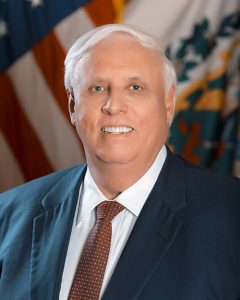Charleston, W.Va. (WVDN) — A coalition of advocacy organizations held a press conference on February 10, 2025, in the Upper Rotunda, House Side, of the WV State Capitol to discuss the proposed changes to the public hearings process under H.R. 1.
Public hearings have long been a cornerstone of WV’s legislative process, allowing citizens direct access to their elected representatives. Proposed changes under H.R. 1 have raised concerns about maintaining transparency and public participation in the legislative process.
When: Monday, February 10, 2025, 1:00 pm
Where: WV State Capitol Building, Upper Rotunda, House Side
Speakers & Statements:
Kasey Rusell, West Virginia Environmental Council (WVEC) Lobbyist: “We commend House leadership for proposing rules that promote a more thoughtful and transparent legislative process. We urge the Speaker to uphold the House as the People’s House by ensuring public hearings remain a cornerstone of governance. Preserving the public’s ability to address their delegates on critical issues is essential to maintaining an open and accountable democracy.”
Kenneth Matthews, WV Economic Justice Associate – American Friends Service Committee (AFSC): “Our elected public servants of the legislature need to know what their constituents really think and feel, and public hearings are an important mechanism to ensure that happens. I question why a long-standing tradition of public hearings would be taken away, when it would minimize and impede the public from making their voice heard in a public building of public servants.”
Gary Zuckett, WV Citizen Action Group (WV CAG), Executive Director: “The proposed changes to the House of Delegates rules will create significant barriers to public participation in the legislative process, undermine transparency, and eliminate an essential step in ensuring accountability to the people of West Virginia. The decision to limit public testimony to committee meetings where the chair can pick and choose who speaks and who doesn’t, and agendas may not be published with advance notice, is particularly damaging. It will disproportionately affect the ability of working families and rural residents to impact legislation that will hit them hardest. West Virginia Citizen Action calls on the legislature to amend this rule and strengthen the current policy for public hearings by requiring a 48-hour public notice and all members of the relevant decision-making body (House, committee, etc.) to be present.”
Betty Rivard, representing West Virginia Chapter of the National Organization for Women: “The state chapter of the National Organization for Women supports the current practice of allowing citizens to request and be granted a public hearing on any proposed bill. We also request that a transparent system be used to notify the public of committee and subcommittee meetings and agendas at the same time as legislators and staff.”
Eli Baumwell, Executive Director of the American Civil Liberties Union (ACLU) – West Virginia: “We are a government of, by and for the people. Public hearings have been an important part of giving the public an opportunity to speak on bills that evoke strong public reactions. The failure of legislators to attend public hearings and listen to the opinions of the public is a failure of our representatives, not those people who take time out of their lives to show up and be heard. Cutting the public out will only deepen the divide between constituents and those who claim to represent their interests.”
Pam Nixon, Co-chair of WV NAACP Environmental and Climate Justice Committee:
“Transparency in committee meetings of the House of Delegates, also known as the People’s House, should be accomplished without placing impediments in front of the public. A 24-hour notice may be enough time for professional lobbyists to provide comments to a House of Delegates’ committee, but it is less than ideal for concerned ordinary, working West Virginians who need to request time off from work, prepare their comments, and travel to Charleston. It is imperative that we, the People, are justly treated and allowed meaningful involvement in the legislative process.”
John Doyle, representing WV FREE: It’s truly sad that the WV House of Delegates, after many years of proudly and accurately calling itself the “People’s House,” has apparently decided to shut the people out. The decision to abandon the requirement for public hearings is both unfortunate and wrongheaded.
Julie Archer, representing the League of Women Voters of West Virginia (LWV): “We’re hopeful that the committee process specified in the rule will allow for more deliberative and thoughtful review. However, we have grave concerns about loss of public notice and public participation, said Julie Archer, President of the League of Women Voters of West Virginia. “House rules must ensure that the public can be heard on any given bill. The ability to provide written or in-person testimony on bills is meaningless if there is little or no advance notice of committee agendas. We join our partners and allies in calling on the House to preserve public hearings and ensure that the committee process guarantees public input.”
Following the press conference, the represented organizations formally requested a public hearing on H.R. 1 to ensure the public has an opportunity to weigh in on this significant change in how their voices are heard in the People’s House.
About the Organizations:
Hosted by The West Virginia Environmental Council, American Civil Liberties Union-WV, WV NAACP, WV Citizen Action Group, West Virginia NOW, League of Women Voters of West Virginia, and American Friends Service Committee-WV.
The hosting organizations advocate for transparency, democracy, civil rights, and environmental and economic justice in West Virginia. They are committed to ensuring that public voices remain integral to the legislative process.
For more information, please contact Jillian Welsh at jillian@wvcag.org or 562-305-5769.


















